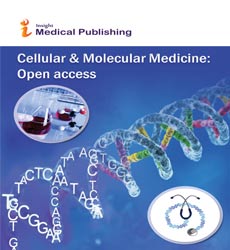Delirium awareness practices among first-line care providers on medical and surgical wards in Jeddah, Saudi Arabia
Waleed Alghamdi
King Abdulaziz Univesity, Jeddah, Saudi Arabia
Received Date: 2022-05-10 | Accepted Date: 2022-05-15 | Published Date: 2022-05-30Abstract
Introduction: Delirium is a mental state that is characterized by acute disturbance of consciousness and attention, which may present with impaired cognition (orientation, memory, abstract thinking), behavioral and psychomotor abnormalities (ranging from apathy to agitation), psychotic symptoms (delusions and hallucinations), and mood instability. The onset of delirium is usually acute. Its incidence is reported to range from 9% to 87%, depending on age, severity of the medical illness and type of surgery. It has been shown that delirium is severely under-recognized and underdiagnosed by health care professionals which may have major negative sequelae on patients’ health outcomes given it’s potential complications. These complications include prolonged hospitalization, institutionalization, increased mortality and poor physical and cognitive recovery.
Objective: In this research, we hypothesize that the problem of delirium under-recognition is the result of limited knowledge and awareness of delirium among first-line health care staff (i.e. nurses, house officers and residents). Method: we developed a questionnaire to survey first-line health care staff at different public hospitals in Jeddah. Through this questionnaire, we aim to explore the different aspects relating to delirium awareness during the day-to-day practice by the staff such as screening practices, and utilization of prevention strategies. Results: We are currently in the process of data collection which is on track to be completed in August 2016. Conclusion: Our results would offer a better insight into the awareness and practices related to delerium prevention, detection and management among health care providers. This would allow health care planners and educators to develop effective inteventions to amend the exsisting gaps.
Open Access Journals
- Aquaculture & Veterinary Science
- Chemistry & Chemical Sciences
- Clinical Sciences
- Engineering
- General Science
- Genetics & Molecular Biology
- Health Care & Nursing
- Immunology & Microbiology
- Materials Science
- Mathematics & Physics
- Medical Sciences
- Neurology & Psychiatry
- Oncology & Cancer Science
- Pharmaceutical Sciences
